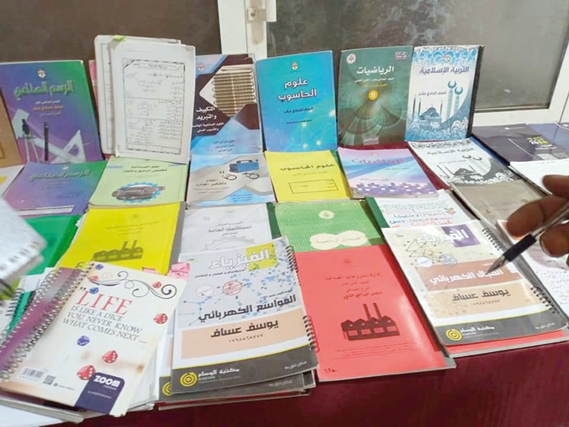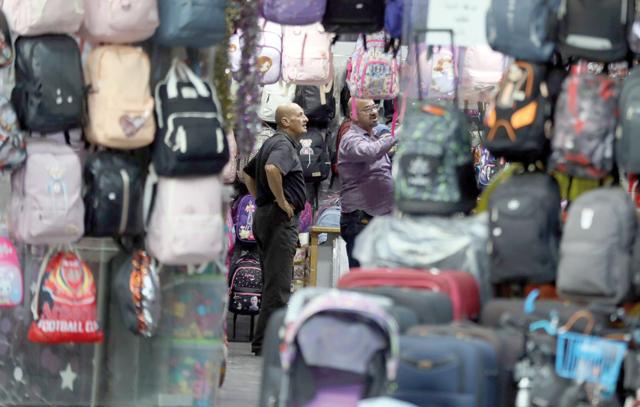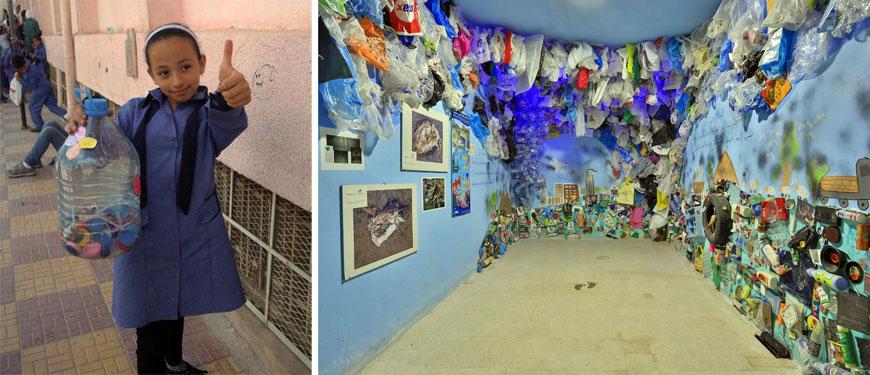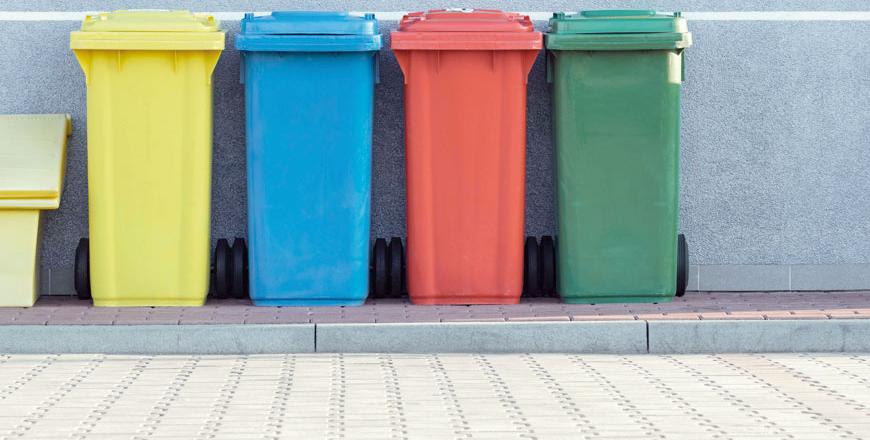You are here
Second-hand school supply initiative benefits students, planet
By Rayya Al Muheisen - Sep 18,2022 - Last updated at Sep 18,2022

Reusing books, stationery and uniforms not only makes education more accessible for less privileged students, but also benefits the environment, says Manal Hazzam, the founder of a recycling initiative (Photo courtesy of Manal Hazzam)
AMMAN — Reusing books, stationery and uniforms not only makes education more accessible for less privileged students, but also benefits the environment, says the founder of a recycling initiative.
Manal Hazzam, a Jordanian citizen, wanted to connect those willing to share and those who would welcome the shared items.
The “Providing your books is our responsibility; pursuing good grades is your responsibility” initiative was founded in 1998 by Hazzam, and was first launched in Aqaba Governorate. Every year, the initiative provides schoolbooks, uniforms and stationery for almost 240 students nationwide.
Hazzam told The Jordan Times that the basic idea behind this initiative was prolonging the lifespan of resources as well as instilling a culture of sharing within society.
“The motto I’ve propagated is leave what you can, take what you need,” Hazzam added.
Hazzam stated that she collects school books, worksheets, uniforms and stationery from households upon request. “I take a taxi or rent a truck to take me to the pick-up location,” said Hazzam.
“I collect all the items on my rooftop. Then I begin to sort, fix and polish the old items to restore them to good shape so I can give them away,” Hazzam added.
She added that her faith in this initiative motivates her to put all her effort and resources into serving underprivileged students. “I believe that this should become an intrinsic part of our culture,” said Hazzam.
“What I really aim for is to have designated drop-off places nationwide,” Hazzam added.
She added that this initiative has been fruitful in many ways. “The more we reuse, the more we reduce the burden on our planet,” said Hazzam.
“The truth is that this is a planet with finite resources, which are already overused,” Hazzam added.
She stated that a culture of sharing and reusing items is urgently needed.
“No book should go in a trash can or even to a recycling centre before it has reached the end of its lifespan,” Hazzam concluded.
Related Articles
AMMAN — Stationery, transportation and uniform costs add to parents’ financial burdens at the beginning of every academic year.Student fees
AMMAN — “My dream was to see my country clean,” explained Amal Madanat, the founder of the “Towards Zero Waste” initiative implemented at th
AMMAN — Changing the mindset of younger children and replacing the habit of excessive consumption to reduce, reuse and recycle are vital in


















